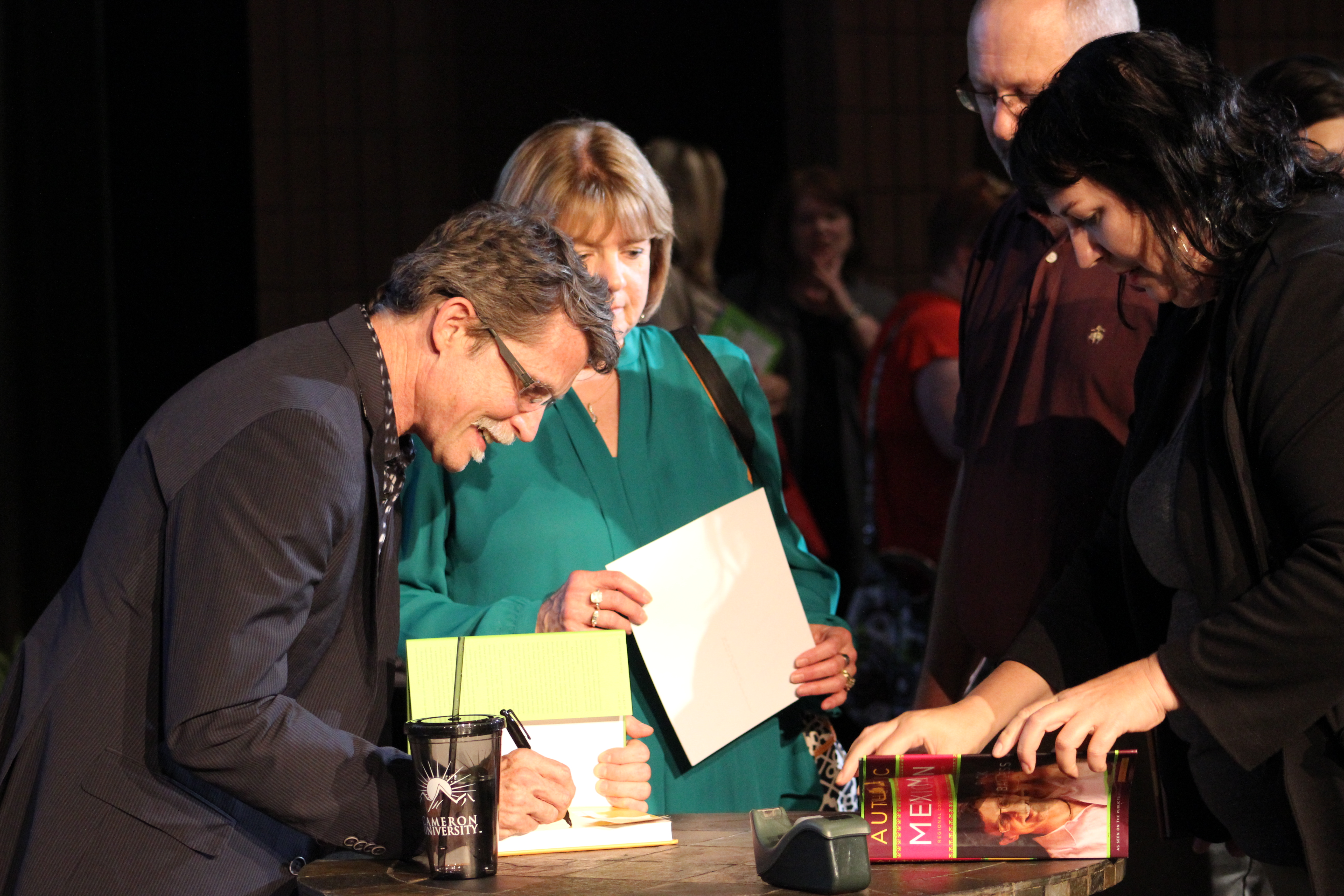
Casey Brown and Smith Steigleder
Collegian Staff
The 2014-15 academic festival kicked off at 3:30 p.m., on Sept. 25 in the MCC Ballroom when Chef Rick Bayless visited with CU students. At 7:30 p.m., he delivered a keynote address to a packed audience of students, alumni and CU supporters in the University Theatre.
Bayless, an Oklahoma native and advocate for sustainable practices in the food industry, is the owner of multiple restaurants in the Chicago area. He is also the first winner of “Top Chef Masters,” the host of “Mexico-One Plate at a Time,” which airs on PBS, and the author of eight cookbooks including “Mexico-One Plate at a Time,” which won the James Beard Best International Cookbook Award.
Bayless said sustainability is something people can keep doing – it is a development that meets the need of the present without compromising future generations’ ability to develop.
Frontera Grill, Bayless’s first restaurant, opened its doors in 1987 and said at first it was not a sustainable endeavor.
“Our restaurant has been around for 28 years now,” Bayless said, “and we started with what I would say was unsustainable, just sort of the standard-issue restaurant procedure.”
Over the years, he and his colleagues have learned how to develop a sustainable model for his restaurants and the Frontera Farmer Foundation, which supports local, organic farming.
He said most restaurants produce considerable waste and use a lot of energy, whereas his model is to promote sustainability by buying locally, recycling and turning food waste into compost.
“A light bulb went off in my head that said, ‘Wait a second, I just moved back from Mexico where every region that had great agriculture had great cuisine. Maybe I need to start exploring local agriculture,’” Bayless said, “and over these 28 years we have been one of the leaders to develop more local agriculture, especially through our farmer foundation.”
The move to sustainability has been beneficial, and one of the messages he shared with the crowd is that his success is in part a result of his relationship with local agriculture.
“Whenever there is great food and great agriculture, the two go hand in hand,” Bayless said. “People need to eat local, fresh food. Local agriculture keeps you more tuned to the seasons, it is fresher, it tastes better and it is from local terrain.”
Bayless proposed that local agriculture benefits local communities. Widespread use of local agriculture can in turn benefit the entire country.
“I say we have to think about agriculture in a different way for the health of our country because we have to get people to connect back to the local source of some ingredients,” Bayless said. “As human beings, we are built to eat sustainable stuff that grows around us. That’s the way we developed as human beings.”
Bayless has noticed a trend that many people in this country primarily eat fast food instead of cooking. He said during his childhood, his family rarely ate out, but in today’s society eating on the go is oftentimes the norm rather than the exception.
“If we want to be a healthy country, we are going to have to connect our food in a new way, pushing processed food to the side,” he said.
While food from chain and fast food restaurants is largely processed, Bayless said much of the food available at grocery stores is also unhealthy.
“A lot of what we find in the grocery stores, the commodity stuff, is not all that delicious,” Bayless said. “It is grown to be picked early and shipped a long distance.”
The country is saturated with fast and commodity food. Bayless suggested that attending farmer’s markets and sourcing ingredients locally is a starting point for the transition from drive-thrus back to the kitchen.
“I’m really happy that I can say that the farmers-market era is fully upon us,” Bayless said. “So people, at least during the season, can go to a farmer’s market, buy a tomato, slice it up, sprinkle it with some salt and pepper… and have one of the most delicious things in the world, and that is not hard to prepare. We have to take it in baby steps.”
The next speaker in the academic festival is Robert Glennon from the University of Arizona who will be speaking about water sustainability. He will be on campus on Nov. 18 and tickets will be available mid- to late Oct. For more information, go to www.cameron.edu/festival2014-15.
